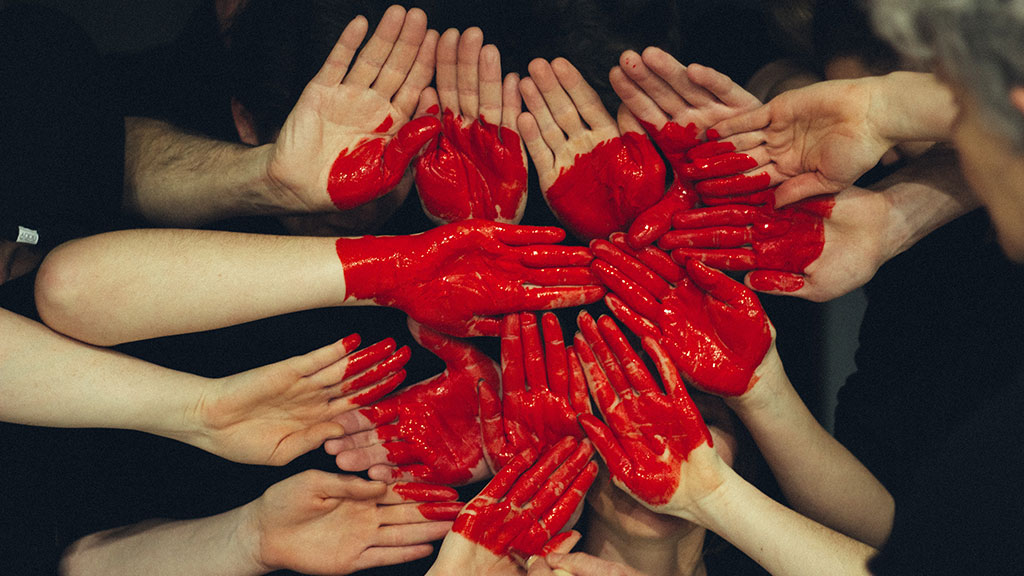The UOC's Volunteering Programme cements its position with constant growth over the years
The 20 partner organizations from the voluntary sector have combined on-site and online volunteering opportunities in response to the difficulties posed by the pandemic
The UOC's Social Volunteering Programme has shown great progress over the years. The 2020/2021 academic year saw the participation of 337 volunteer students, a figure that underlines the strength of a project created in 2018 with 37 volunteers. The programme, which is the developed by the University's Globalization and Cooperation department, in collaboration with the Network of UOC Centres, was created to progress with the University's early partnerships with such organizations, which started in 2014. The number of organizations entering into alliances with the Volunteering Programme has doubled in the last two years, and currently stands at a total of twenty.
The programme has also seen high levels of demand, with the number of applicants more than doubling the places available in the last academic year. This year the volunteer positions available have changed due to the pandemic, which has led some of the participating organizations to include the possibility of taking part online. Examples of the efforts made to overcome the obstacles raised by COVID-19 include those provided by organizations like AFA-Puerto and AFEV and the Technovation Girls programme. These online endeavours have been combined with on-site volunteer work.
Creating social impact and helping further the 2030 Agenda
The UOC's Volunteering Programme aims to ensure UOC graduates are global citizens and professionals and to contribute to doing away with local and global inequalities through both in-house programmes and projects headed by voluntary organizations with a seal of quality. "This programme is a tool for creating agents of change; it helps make a contribution to transforming society and, as a result, achieving the 2030 Agenda Sustainable Development Goals," said Guida Fullana Pastor, Director of Social Projects in the UOC's Globalization and Cooperation department. The programme has a direct impact at a national level thanks to its relationship with organizations and the work of the UOC's regional delegates. "The ability to make a contribution to society on a local level from an online university is something highly valued by both students and the institutions and organizations we partner with," explained Miguel Ángel García, regional delegate and programme coordinator for the Network of UOC Ccentres.
The UOC's volunteer work is much appreciated by its partner organizations, since "our students are extremely professional and motivated; they are really engaged, independent and able to take a critical eye to social problems," said Aina Villalonga, the programme's technical coordinator.
Volunteer work also provides a learning experience, with the acquisition of transferable skills (such as empathy, social awareness, analytical thinking, emotional management and conflict resolution), together with the assimilation of values such as solidarity, equality, participatory democracy and active citizenship. Volunteer work becomes a tool for transforming how volunteers see the society that surrounds them. They become an agent of change, and learn beyond the limits of their academic programme. Bachelor's degree students can also apply for recognition of optional credits (in accordance with the criteria established by the UOC's academic regulations).
Volunteering: the thematic areas
The UOC's Volunteering Programme carries out projects in different thematic areas together with partner organizations from the voluntary sector. One of these areas is that of inclusive social mentoring and extra academic tutoring for vulnerable children and youths formerly the ward of the authorities. The Zero Kilometre Association, AFEV Catalonia and Valencia, Esplai Blanquerna, Ayudar Jugando and the AYO Foundation are just some of the partner organizations offering programmes in this field with accredited quality seals.
Raising public awareness and the fight against inequality are two more of the programme's priorities, which are achieved through social and employment reintegration, skills courses and training, and legal and psychological advice programmes for vulnerable groups (migrants, refugees and asylum seekers, minorities, women and the LGBTI collective at social risk), with organizations such as the Spanish Red Cross, Accem, Radio Ecca, the Fundación Secretariado Gitano (FSG), the Enllaç Foundation and the El Llindar Foundation.
The UOC also runs its own welcome programme for refugees and asylum seekers and is also the first university to partner, together with its mentors, with the Government of Catalonia's Catalan Refugee Programe. This project's chief mission is to mentor these people in the language learning process, familiarization with the local environment and broadening of their social network.
Another goal is to fight against the digital divide (Esplai Ciudadanía Comprometida Foundation, Colectic and Azahara) and the gender gap, which is why the UOC works with the Espiral Association to provide the Technovation Girls Catalonia programme, which has the objective of delivering digital entrepreneurship and STEAM career training for girls aged 10 to 18. This programme asks teams of up to five girls and a UOC mentor to come up with a mobile app to deal with a local social problem.
There are also volunteer programmes in the fields of health and caring for people with illnesses, through partnerships with Oncolliga, AFA Puerto and Farmamundi Euskadi. Lastly, there are social work internships to help women find work and become empowered with Athena, an entrepreneurship initiative with a feminist and gender perspective.
Press contact
-
Editorial department
